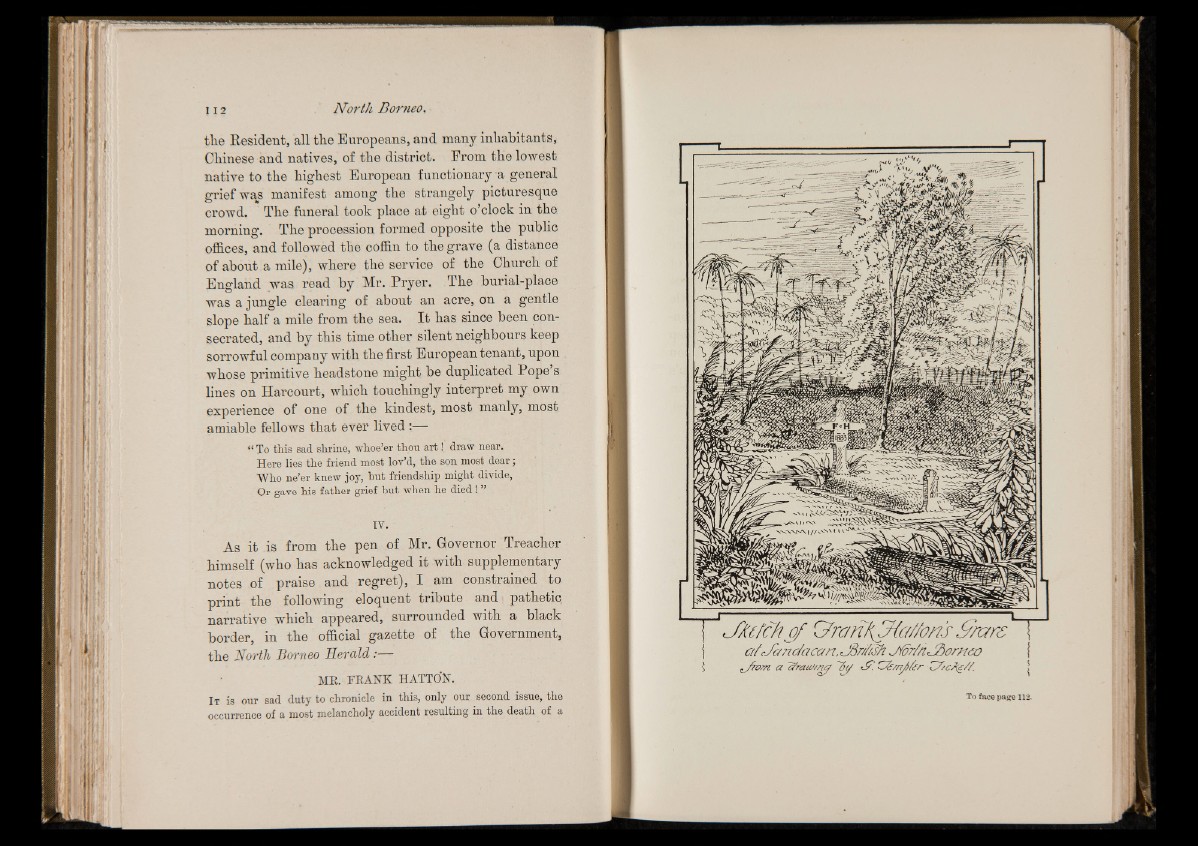
tlie Resident, all the Europeans, and many inhabitants,
Chinese and natives, of the district. From the lowest
native to the highest European functionary a general
grief was manifest among the strangely picturesque
crowd. The funeral took place at eight o’clock in the
morning. The procession formed opposite the public
offices, and followed the coffin to the grave (a distance
of about a mile), where the service of the Church of
England was read by Mr. Pryer. The burial-place
was a jungle clearing of about an acre, on a gentle
slope half a mile from the sea. I t has since been consecrated,
and by this time other silent neighbours keep
sorrowful company with the first European tenant, upon
whose primitive headstone might be duplicated Pope s
lines on Harcourt, which touchingly interpret my own
experience of one of the kindest, most manly, most
amiable fellows that ever lived :—
“ To this sad shrine, whoe’er thou a r t! draw near.
Here lies the friend most lov’d, the son most dear;
Who ne’er knew joy, hut friendship might divide,
Or gave his father grief hut when he died ! ”
IV.
As it is from the pen of Mr. Governor Treacher
himself (who has acknowledged it with supplementary
notes of praise and regret), I am constrained to
print the following eloquent tribute and pathetic,
narrative which appeared, surrounded with a black
border, in the official gazette of the Government,
the North Borneo Her o ld :
ME. FRANK HATTON.
I t is our sad duty to chronicle in this, only our second issue, the
occurrence of a most melancholy accident resulting in the death of a
j J i c f 'c f r o f & r a n f{ [ J { c /ffo n s ,9 ‘r a r s \ j afrJcmc/acan, jBr/hóh Jior/n^òom to
l çjrom a Z^r/njbfer Z^/cXg//.
To face page 112.